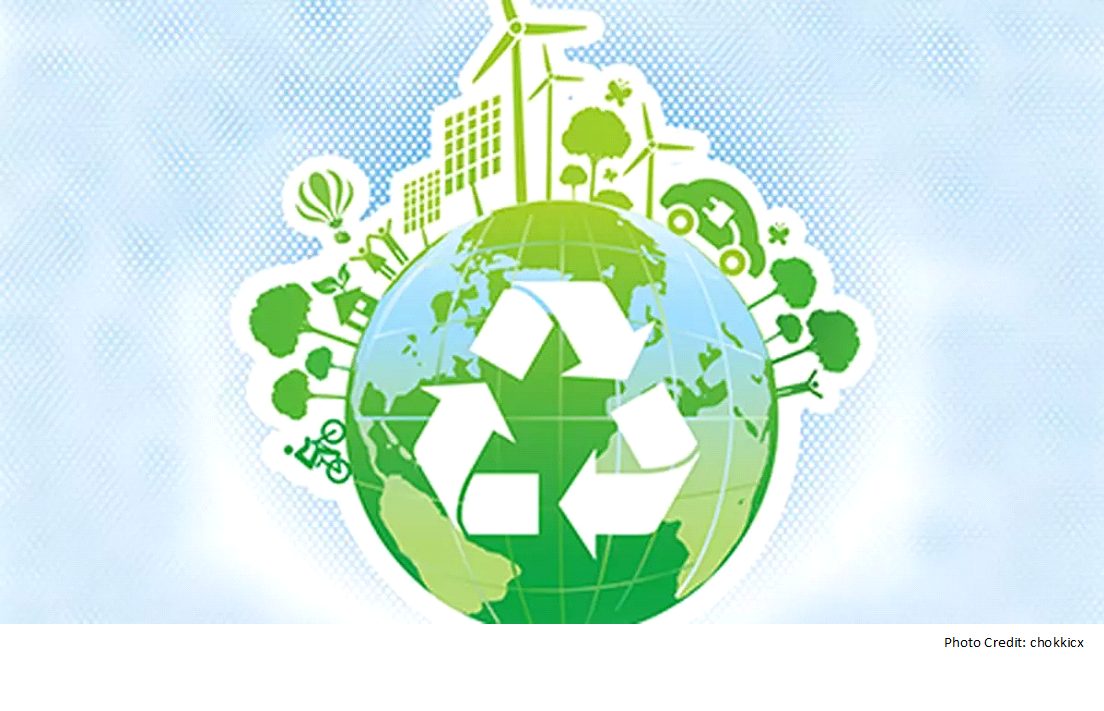Green jobs’ from green power
19 Jan 2024
Opinion: Sanjib Pohit and Chetana Chaudhuri.
Installation, maintenance in renewable energy will create jobs, even as energy transition poses challenges.
COP28 emphasised that transitioning from fossil fuels in energy systems is required in a just, orderly and equitable manner. The path of decarbonisation requires shift to low-carbon options. Demand-side management measures like production and supply chain adaptation or improving energy efficiency are not sufficient to reduce energy requirement.
However, the social and economic transformation required to facilitate the green transition will inexorably bring in change in the labour market.
Currently, India’s share of renewables in power generation is only 12 per cent (as of February 2023), and coal is still the dominant source of energy for power generation (73per cent in 2023). Energy is one of the key sectors in India, which is inter-linked with almost all other sectors. It is used as an input to all the sectors in manufacturing, services and also is an important input in the agriculture sector.
It itself receives inputs from several manufacturing and services sectors. So, the effect of energy transition would not be just limited to energy sector alone, but also would have impact on other sectors in the economy which provide input to the energy sectors.
NCAER’s study finds that direct and SAM (Social Accounting Matrix) employment multiplier for solar power generation is higher than coal, and comparatively less for wind for India. This means that to produce the same amount of output in monetary terms, generation of solar power requires employment of more workers as compared to coal, while wind power requires comparatively smaller number of workers.
New jobs
As we shift away from ‘brown’ energy sources for power generation, there would be reduction in employment in coal sector, while adaptation of ‘green’ energy would pave the way for employment in renewable energy sectors like solar or wind. And this employment, would not only be created in operation and management of power plants, which was captured in earlier multiplier estimates, but also for manufacturing and installation of new renewable power plants.
Estimates show that in India too, renewable energy sources, especially solar power have substantial potential for employment generation in manufacturing and installation. While the jobs related to O&M are generally of longer duration, nature of employment for manufacturing and installation of power plants can be transient in nature, concentrated at the beginning of the power plant’s life span.
The requirement of skills would also differ across technologies. Odisha, where coalmining sector is a source of livelihood to many low-skilled and unskilled labours, needs to generate appropriate jobs for people losing livelihood in the process of transition. There is major concern that the jobs generated in India for renewable sources are generally low-skill jobs and there is not much job generated for high-skilled workers in manufacturing and installation.
One important fact that we need to remember here that India is highly dependent on imported goods for manufacturing of renewable power plants. For example, India imported solar cells, assembled in modules or made up into panels worth $3,363.20million and wind mill, wind turbine and engines worth $0.07 million in 2021-22. If domestic production of these commodities are encouraged, it can be a significant contributor to employment generation. However, the impact of the adoption of green fuels will have different impact on different States. For example, only 0.15 per cent of usually working persons as defined in Periodic Labour Force Survey 2021-22 in Kerala in engaged in mining and quarrying while 1.10 per cent of Odisha is engaged in that sector.
Transition to green energy will impact employment in the mining sector and States which are dependent on mining as a source of revenue and employment, would be affected more as compared to those which are not that much resource-intensive.
State sops
The government, in 1952, introduced Freight Equalisation Policy (which was in place till 1993), to promote balanced regional development. Under that policy, the Centre was subsidising the transportation of ‘essential’ items which included coal, steel and cement among others, from resource-rich States to resource-deficit ones.
Coastal States like Maharashtra, Tamil Nadu and Gujarat benefited from this step and resource-rich States like Madhya Pradesh, West Bengal, Bihar (now Jharkhand) or Odisha lost some of their competitive advantage. Now, when coastal States have the advantage with wind and some States are more endowed with longer daytime for production of solar energy, policies need to support the States which lack such resources or infrastructure. Land availability is a major challenge of wide scale implementation of renewable energy projects, especially for States like Kerala. Land acquisition can also disrupt ecology and biodiversity.
It is also important to note that lifespan of renewable energy power plants is less (approximately 30 years for PV module or 20 years for wind-based power plants) as compared to fossil fuel-based power plants (40 years for coal). This would require replacement of PV solar panels or wind turbines more frequently as compared to fossil-fuel-based power plants; thus, generating more employment in manufacturing and installation of renewable power plants.
But a recent paper by Heather Mirletz and colleagues, published in Nature Physics estimates that due to shorter lifespan, globally, the solar waste generation would amount to 54 to 160 million tonnes between 2016 and 2050, resulting in huge quantities of dumped panels.
Wind turbines which are generally 170 feet long, are also mostly dumped (and not recycled in practice) after its lifetime, and are going to add 43 million tonnes of blade waste by 2050 globally, a study by Liu and Barlow estimates. India needs to be prepared for the social and environmental consequences of the offtake of renewable energy sources.
Dr Sanjib Pohit is Professor at NCAER and Chetana Chaudhuri is Fellow at NCAER. Views expressed are personal.
Published in: The Hindu Business Line, 19 Jan 2024






